Influencer marketing is on the rise, with more money and interest than ever before. But as bloggers, vloggers and Instagrammers become established career options, how easy is it to sort quality collaborators from those attempting to make a quick buck?
Unethical practices exist throughout the industry, with both influencers and PRs accused of wrongdoing. There is also a great deal of confusion from brands over what constitutes quality ROI and why high follower counts don’t always lead to killer results.
Scott Guthrie is the former Ketchum digital director – influencer relations, and now works with brands, agencies and platforms to generate meaningful results from influencer marketing. Scott is also one the Top 10 UK PR Bloggers, writing about industry analysis, insight and best practice guides at sabguthrie.info.
We spoke to Scott to find out more about why buying fake followers could be a crime, what metrics PRs and brands should be using when working with collaborators and why #ad is proving problematic for the whole industry.
You’ve recently been researching how buying fake followers is fraud – what did you learn?
I learned three things from researching the realities of influencer fraud:
- Influencer fraud is more than reputationally damaging and ethically unsound, it might also be a criminal offence. If a social media influencer buys followers with the intention of misleading an organisation into paying them to promote a product, they could be breaching the Business Protection from Misleading Marketing Regulations 2008. Acting in this way could also potentially be considered fraud.
- Influencer fraud appears to be new territory for the organisations I spoke with. Each spokesperson was very obliging and extremely knowledgeable about their specific area of expertise, but it appeared to be the first time they had been asked this question.
- The process is complicated. Brands and consumers have a steep learning curve ahead if they want to bring wayward influencers to book through legal recourse. It might be an easier approach to spend time in the effective selection, vetting and onboarding phases when finding the most appropriate influencers for their programmes
I dig into the topic in my article Influencer fraud could be criminal offence.
Why are fake followers such a problem for brands and PRs looking to work with big names?
Simply put: fake followers don’t buy stuff. At its core, influencer marketing works because, as consumers, we find influencers more relatable than brands speaking at us via social media.
The essence of an influencer’s power lies in their ability to either alter the behaviours or change the opinions of their following. If their audience is fake they will not have the ability to influence.
Of course, fake followers only become a problem when you choose influencers based on audience size alone.
Obsessing over fake followers is to look at the wrong end of influencer marketing’s problem. Communicators should focus instead on the impact not the outputs of their influencer marketing campaigns.
How can you check if someone has bought followers, colludes with others or otherwise operates unethically?
You can weed influencers with fake followers by checking:
- Sudden spikes in their follower figures
- Quality of the follower (i.e. are their followers’ bios fully filled out? Do they have followers in their own right?)
- Average engagement rates (separately & combined organic content vs paid-for content). Engagement rates either well below or well above average for the platform and vertical might point to bought or colluded engagement.
- Followers in surprising countries
- Amount of content published vs number of followers (i.e. high follower count but low content output)
Weeding out fake followers is just one part of a thorough vetting process. Vetting takes a blend of algorithm doing the heavy lifting augmented with the contextual intelligence of a PR professional to do the job effectively.
There is no denying that thorough vetting and selecting influencers takes time. But it should be considered in the long term. A lot of the time, effort and therefore costs for influencer marketing is front loaded. The costs decrease proportionally the longer the brand and influencer relationship endures. You get better results, too, when brand and influencer build trust over the long run. This is a win for brand, influencer and – of course – consumer.
What metrics should PRs be focusing on when selecting influencers for campaigns?
The metrics to focus on depend on the communications and business objectives you’re working towards. Sure, audience size has an impact, but the relevance of that following to your brand and key messages is more important. As is how both influencer and audience interact with each other through comments, likes, shares and other engagement.
Selecting the most appropriate influencer for your brand requires both hard and soft skills. Beyond metrics you also need to check their tone of voice and brand values. Do theirs mesh with those of your brand’s? Has the potential influencer ever worked with your competitor? Do they work with any other brands? If so, how many? I’ve explored how to vet influencers in earlier articles.
How important are micro influencers compared with macro influencers for different campaigns?
Average engagement rates on brand-sponsored posts decline as influencer account sizes rise. Brands looking to encourage high engagement rates for their influencer work should focus on a micro influencer strategy.
Also, while influencer account size remains the main yardstick for agreeing fees, a micro-influencer strategy gives you more bang for your buck. However, a note of caution: marshalling micro influencers at scale requires greater coordination and management from PR practitioners – and therefore cost. You also have to make a risk assessment when considering the thoroughness of the vetting process for each micro Influencer.
Many influencers don’t like using advert labels (eg #ad or #spon) because it lowers engagement – what advice do you have for them?
I get asked this question a lot. I am an advisor for CampaignDeus, which has produced some interesting research recently on Instagram posts. It found there is a significant negative variance when using an admarker on paid-for content versus organic content.
The variance widens depending on the admarker used. The most popular admarker is #ad with over 60% of posts containing this hashtag. This admark also has the lowest negative impact on engagement rate. Instagram’s Paid Partnership fares the worse. This hashtag reduces engagement rates by over 30%.
However, it’s my contention that, as consumers, we don’t have an issue with advertorial and sponsored content on three provisos:
- We don’t feel hoodwinked into thinking the content is organic — i.e. admarks are used effectively
- The content is good quality; it educates, informs or entertains us
- We’re not inundated with paid-for content – our favourite influencers produce a ratio of organic to paid-for content which we deem to be acceptable. This is probably no more than 1:3 sponsored to organic
The drop-in engagement rates is because the paid-for content posted fails at least one of these three criteria.
What else should influencers be aware of when working on paid-for content?
Image manipulation will be scrutinised more closely. Regulators’ codes require that advertising should not either mislead or exploit consumers credulity, inexperience or lack of knowledge. Using post-production techniques that exaggerate the effects of an advertised product could mislead. In an age of ubiquitous image filters and smartphone-ready editing apps there is scope for influencers to mislead consumers inadvertently or by design.
Will the issues of unethical practices between PRs, brands and influencers be resolved or do you think it’s too late?
Exposing unethical practices is great news for the influencer marketing discipline. After all, sunlight is the best disinfectant.
A commercial imperative for tangible results from brands alongside influencers’ audiences heightened demand for high-quality content will force a maturation of the influencer marketing industry. Social media influencers who produce thoughtful, creative sponsored content will do well in the new results-driven era of influencer marketing. The rest will need to find new careers.
Anyway, from a brand’s point-of-view what’s the alternative? We hate banner ads, pop ups and search ads.
Want to work with bloggers, vloggers, Instagrammers, content creators and influencers in the right way? You need the Vuelio Influencer Database.
 The Competition and Markets Authority has launched an investigation into celebrities and social media stars who aren’t disclosing paid-for content. The CMA has identified the practice as a major issue and has written to a number of users to find out how they are working with PRs and brands.
The Competition and Markets Authority has launched an investigation into celebrities and social media stars who aren’t disclosing paid-for content. The CMA has identified the practice as a major issue and has written to a number of users to find out how they are working with PRs and brands. Over 1,000 Google employees have signed a letter to protest the company’s plans to a build a censored search engine for the Chinese market.
Over 1,000 Google employees have signed a letter to protest the company’s plans to a build a censored search engine for the Chinese market.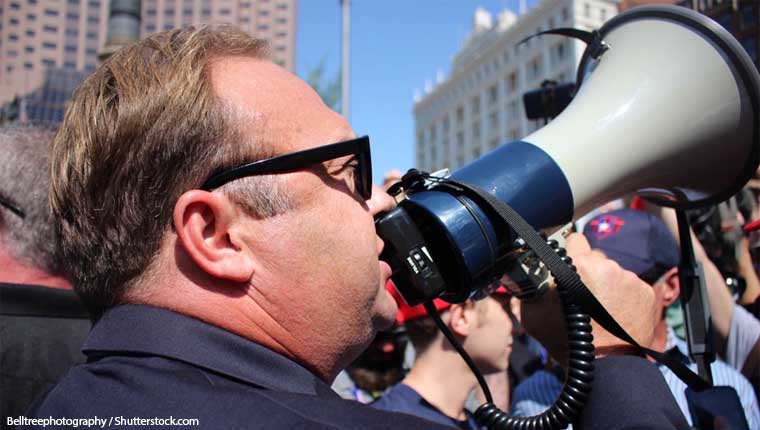 Obviously wanting its own headline in Five Things, Twitter waited a week to join every other major social network in banning right-wing conspiracy theorist, and Info Wars owner, Alex Jones. The platform appeared in last week’s edition defending its decision to leave Alex Jones’ account running as he hadn’t broken any rules.
Obviously wanting its own headline in Five Things, Twitter waited a week to join every other major social network in banning right-wing conspiracy theorist, and Info Wars owner, Alex Jones. The platform appeared in last week’s edition defending its decision to leave Alex Jones’ account running as he hadn’t broken any rules. Glasgow’s Herald is merging its editorial team with the Sunday Herald, as the publisher seeks to save on costs. Plans being mooted include rebranding the Sunday Herald as the Herald on Sunday, and making the papers share the same editorial line and broadsheet format.
Glasgow’s Herald is merging its editorial team with the Sunday Herald, as the publisher seeks to save on costs. Plans being mooted include rebranding the Sunday Herald as the Herald on Sunday, and making the papers share the same editorial line and broadsheet format.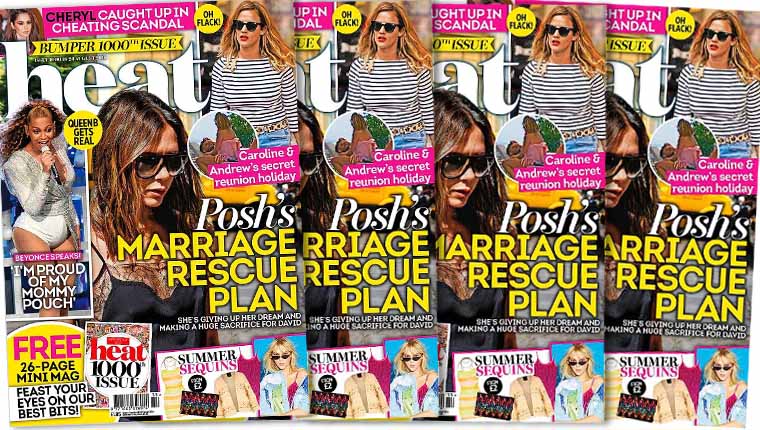 Heat magazine is celebrating its 1,000th issue this week with a bumper edition, including a mini mag that features all the original content from its first issue in 1999. While the magazine boasted a massive print circulation of nearly 600,000 copies back in its 2006 heyday, now it has fallen to less than 120,000.
Heat magazine is celebrating its 1,000th issue this week with a bumper edition, including a mini mag that features all the original content from its first issue in 1999. While the magazine boasted a massive print circulation of nearly 600,000 copies back in its 2006 heyday, now it has fallen to less than 120,000.











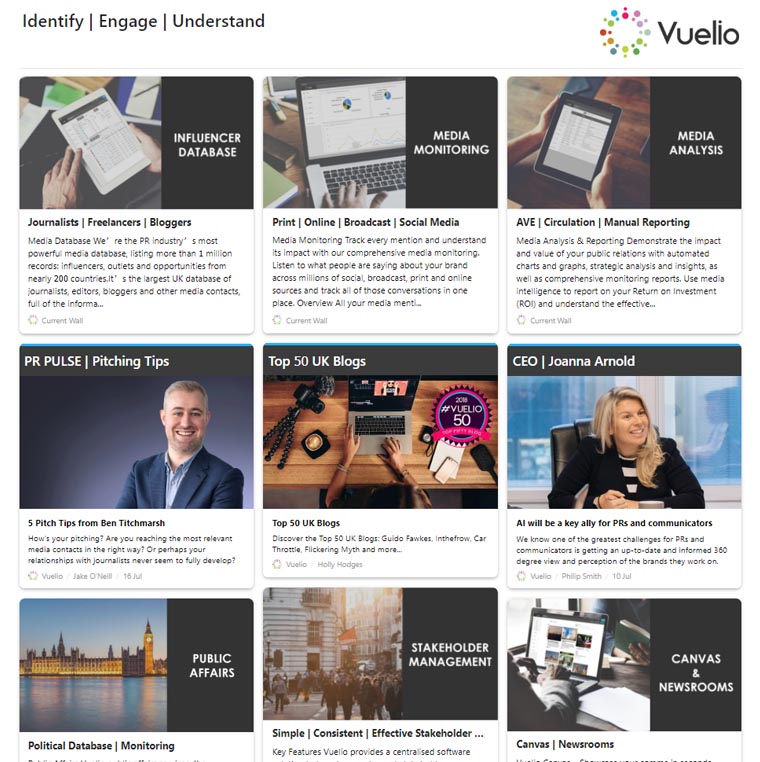


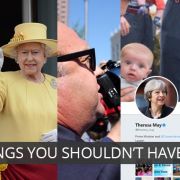

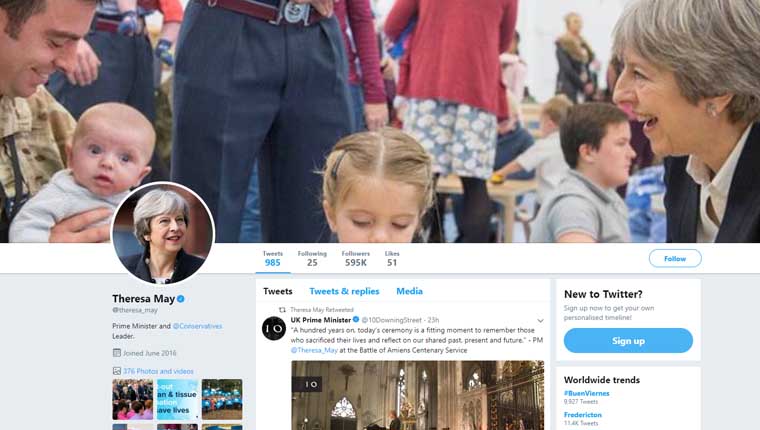
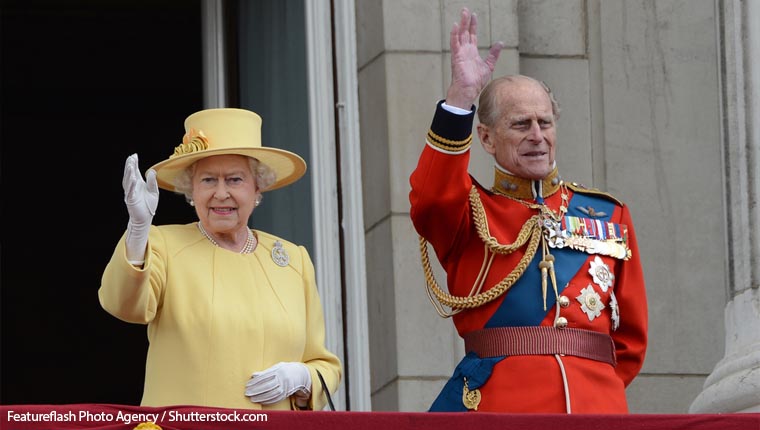


 Following exceptional feedback from 2017, the Vuelio Blog Awards are returning to the Bloomsbury Big Top, a magical venue that promises to wow guests along with our live entertainment, death-defying acts(!) and the most delectable dishes this side of the Michelin guide.
Following exceptional feedback from 2017, the Vuelio Blog Awards are returning to the Bloomsbury Big Top, a magical venue that promises to wow guests along with our live entertainment, death-defying acts(!) and the most delectable dishes this side of the Michelin guide.






